Zinc is the most commonly used die casting metal for many reasons. It is among the simplest alloys to cast, providing high impact strength, high ductility, and simple plating. Read More…
Precision die castings plus a multitude of related services, including engineering, designing, machining, finishing and assembly, occur at A and B Die Casting. Specializing in low to medium volume solutions, we also offer competitive prices.
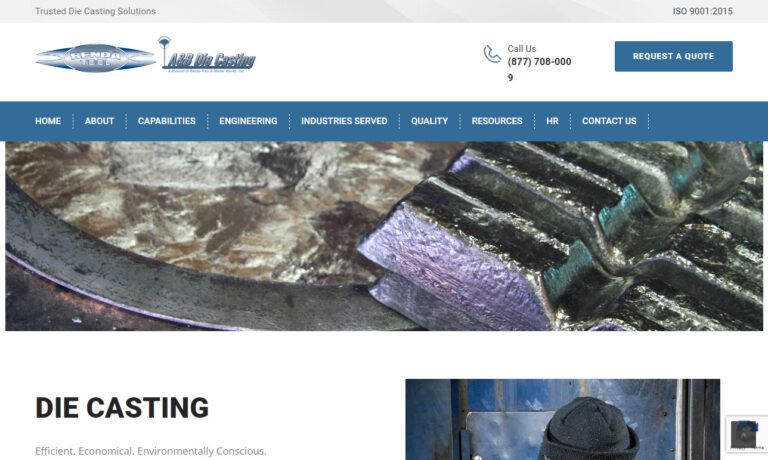
Precision Die Casting since 1950. Aluminum die casting and zinc die casting for aerospace, electronic, commercial industries. Turnkey operations from design or your blue print to assembly.
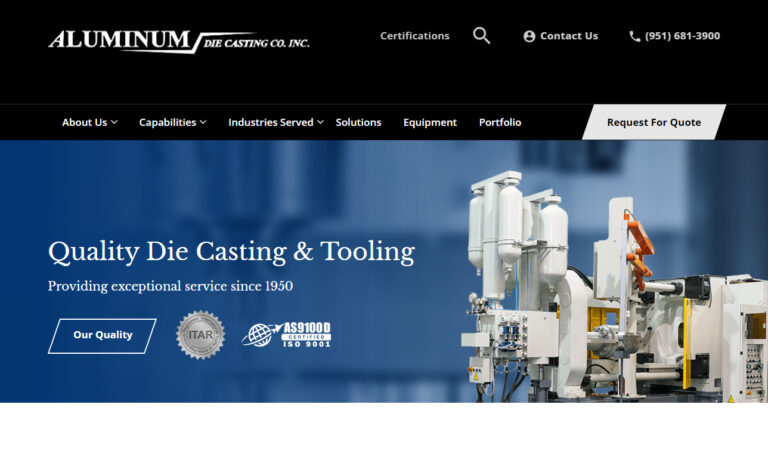
Modern Aluminum Castings offers customers full-service die castings and related capabilities from design to delivery. We work with a large variety of metal options, making us your one-stop source.
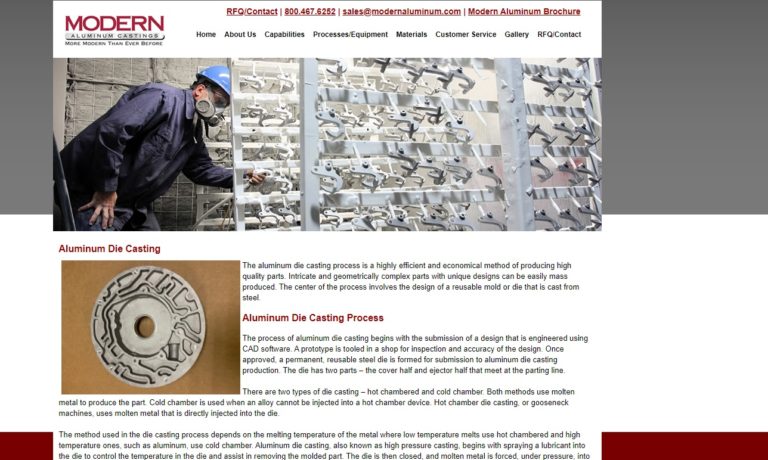
At Kinetic Die Castings, we are dedicated to delivering top-tier die casting solutions that meet the diverse and demanding needs of today’s industries. Specializing in precision-engineered components, we leverage advanced die casting techniques to produce durable, lightweight parts in metals such as aluminum and zinc.

Carpenter Die Casting is more than just a die-casting manufacturer; we are your reliable partner in bringing your ideas to life. With decades of experience, a dedication to quality, and a proven track record, we stand ready to contribute our expertise to your next project. Discover the Carpenter Die Casting difference – where innovation meets tradition, and excellence is our standard.
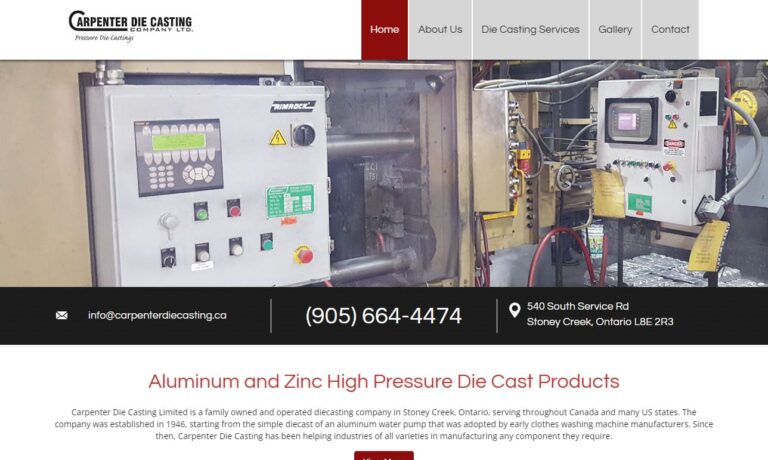
At DyCast Specialties Corporation, we take pride in being a leading provider of top-tier die casting solutions, leveraging decades of experience and innovation to serve a wide range of industries. Our expertise lies in manufacturing precision aluminum and zinc die cast components that are renowned for their strength, durability, and intricate detailing.

More Zinc Die Casting Companies
What are Zinc Die Castings?
Zinc die casting is a highly efficient industrial metal casting process that utilizes molten zinc alloys to manufacture strong, complex, and highly precise components. Zinc alloys are favored for die casting due to their low melting point, excellent fluidity, and robust mechanical properties, making them suitable for producing intricate shapes and thin-wall parts. Compared to other metals, zinc offers a unique blend of affordability, strength, and corrosion resistance, making it a popular choice across a wide range of industries, including automotive manufacturing, electronics production, construction hardware, and consumer goods manufacturing. If you are researching metal casting solutions for high-precision, cost-effective parts, understanding zinc die casting’s core strengths is essential.
One of the key characteristics of zinc as a die casting material is its low melting point, around 419°C (786°F). This enables the use of lower heat during the casting process, which results in less thermal stress on the die (mold). Consequently, the die enjoys an extended lifespan, sometimes exceeding hundreds of thousands of cycles, which significantly reduces tooling costs and enhances cost-effectiveness for high-volume production runs. Lower tooling costs and efficient mass production are primary reasons manufacturers choose zinc die casting over alternative metal forming processes.

Much like injection molding, zinc die casting relies on a specially engineered tool—a die casting mold—that must withstand high pressures and repetitive use. Investing in a well-designed, “molding-friendly” die by an experienced engineering team ensures not only product quality and consistency but also reduces operational downtime and maintenance requirements. If you’re evaluating zinc casting suppliers, inquire about their in-house tooling design and maintenance capabilities, as these directly affect lead time and part reliability.
In the die casting process, molten metal is injected into a precision-machined die at high pressure, filling even the most intricate cavities. Upon cooling, the solidified part is ejected, yielding complex metal parts with tight tolerances and excellent surface finishes. This advanced manufacturing process is ideal for mass production of metal components that require both high strength and dimensional accuracy, setting zinc die casting apart from sand casting, investment casting, and other metal forming methods. Curious about how zinc die casting compares to aluminum die casting or magnesium die casting? Jump to our FAQs below for a detailed comparison or learn more about alternative casting solutions.
Zinc Die Casting Process
The zinc die casting process is renowned for its efficiency, repeatability, and ability to deliver millions of high-quality metal parts annually for various sectors. This process is predominantly carried out using two primary techniques: hot chamber die casting and cold chamber die casting. Each method is tailored to specific zinc alloys and production requirements, contributing to the versatility and scalability of zinc die casting in modern manufacturing. If you’re searching for how zinc die casting works or want to understand which casting method is right for your product, this section will provide the technical insight you need.
Both methods utilize automated machinery to inject molten zinc alloys into multi-cavity steel dies under carefully controlled conditions. The rapid solidification of zinc inside the cooler steel mold ensures the final component possesses a dense, durable structure and outstanding mechanical properties. The choice between hot chamber and cold chamber processes depends on alloy composition, part geometry, and desired production rates. Understanding the differences between hot and cold chamber die casting is critical when choosing the right process for your application.
Hot Chamber Die Casting
The hot chamber die casting process is especially well-suited for zinc alloys due to their low melting points and non-corrosive properties. In this method, the injection mechanism is submerged directly in a reservoir of molten zinc, maintained within a metal holding furnace. When the die is closed, a hydraulic plunger forces the liquid metal through a gooseneck into the die cavity at high speed and pressure. This process allows for rapid cycling, with typical machines producing up to 4 or 5 shots per minute, making it ideal for high-volume production. If you’re looking for fast, automated die casting for small to medium-sized zinc parts, hot chamber is often the preferred option.
After the metal solidifies within the die, the plunger retracts, the die opens, and the finished casting is ejected for cooling and subsequent finishing operations. The integrated furnace and injection system streamline the process, reducing cycle times and enhancing efficiency. Hot chamber die casting is the dominant choice for zinc alloys such as Zamak 3, Zamak 5, and other standard zinc alloy compositions, which are prized for their balance of castability and mechanical strength.

Key advantages of hot chamber zinc die casting:
- Faster cycle times and increased productivity
- Reduced metal wastage and energy consumption
- Lower maintenance due to minimal exposure of machinery to corrosive metals
- Ideal for small to medium-sized zinc parts with intricate features
- Improved consistency and repeatability for high-volume runs
- Compatible with standard zinc alloys such as Zamak series
Cold Chamber Die Casting
The cold chamber die casting process is used when zinc alloys contain components (such as high aluminum content) that could damage the submerged injection system of the hot chamber method. In this approach, molten metal is manually ladled into a separate cold chamber (a cylindrical sleeve), which is then sealed by a hydraulically operated plunger. The plunger rapidly forces the molten zinc into the die cavity under immense pressure, ensuring full filling and the creation of complex, dense parts. If your application demands large zinc castings, custom alloy compositions, or has special design requirements, cold chamber die casting may be the optimal solution.
Cold chamber die casting is better suited for larger zinc components and allows for the use of a broader range of alloy compositions. While cycle times are slightly longer than with hot chamber systems, the process provides greater flexibility and is often preferred for specialized or oversized zinc castings. For industrial equipment, heavy-duty enclosures, or prototype runs with non-standard alloys, cold chamber processes offer the required adaptability.

Not sure which zinc die casting process is right for your project? Explore our guide to metal casting processes or contact a zinc die casting expert to discuss your unique application requirements, budget, and production goals. You can also request technical data sheets or compare cycle time estimates for different casting methods when planning your next manufacturing project.
Accuracy and Considerations of Zinc Die Casting
The zinc die casting process is renowned for delivering repeatable, highly accurate, and fully finished parts directly from the mold. This makes zinc die casting the manufacturing method of choice for industries demanding tight tolerances, superior surface finishes, and cost-effective mass production. By leveraging advanced tooling and process controls, manufacturers can achieve exceptional consistency and dimensional stability, even for complex geometries and miniature components. Precision die casting is a top priority for OEMs and product engineers seeking reliable, ready-to-use parts.
Thanks to the inherent properties of zinc alloys, including low shrinkage and excellent castability, finished parts exhibit outstanding durability and resistance to warping, even under mechanical stress or thermal cycling. These factors are critical when producing components for automotive applications, electronics manufacturing, medical devices, and precision engineering applications, where long-term reliability and performance are non-negotiable. For buyers searching for “best tolerances in die casting” or “high-precision metal castings,” zinc alloys consistently deliver results that meet or exceed industry standards.
Dimensional Stability
- Conventional zinc alloys provide outstanding dimensional stability, minimizing the risk of part deformation over time.
- This stability is vital for applications such as gears, housings, and connectors where precise fit and function are essential.
- Engineers benefit from predictable thermal expansion and minimal creep, even under load.
Draft Angles
- Zinc die castings require less draft angle compared to aluminum or magnesium, allowing for more precise net shapes and reduced post-processing.
- In certain cases, parts can be cast with zero draft, which is particularly advantageous for components with moving or sliding mechanical contacts.
- Reduced draft angles make zinc casting ideal for tight-tolerance sliding parts and complex assemblies.
Fluidity
- Zinc alloys exhibit exceptional casting fluidity, enabling the creation of parts with thin walls, intricate details, and fine surface textures.
- This property reduces the need for additional machining or finishing, saving both time and cost.
- Designers can specify micro-features, logos, or branding directly in the casting, eliminating extra steps.
Tolerances
- Zinc die casting can achieve tolerances rivaling CNC machining, often eliminating the need for secondary operations.
- Precision casting is possible for both low and high-volume production, supporting the most demanding applications.
- Consistent, repeatable tolerances are especially valuable for automated assembly lines and robotic manufacturing.
Surface Finishes
- Parts produced by zinc die casting typically have smooth, high-quality surfaces suitable for plating, painting, or powder coating.
- This minimizes surface preparation and enhances aesthetics for consumer-facing products.
Mechanical Properties
- Zinc alloys offer a strong balance of tensile strength, impact resistance, and ductility—ideal for functional and load-bearing components.
- The inherent corrosion resistance of zinc extends product lifespan in demanding environments.
- Looking for high-strength, long-lasting metal parts? Zinc die casting delivers proven performance in critical applications.
Advantages of Zinc Die Casting
When evaluating metal casting solutions, zinc die casting stands out for its unique blend of performance, manufacturability, and value. Below are key advantages that set zinc die castings apart from other processes such as aluminum die casting, magnesium die casting, and traditional fabrication methods. These benefits address common search queries such as “why choose zinc die casting?” and “best casting process for mass production.”
- Thinner wall sections: Due to high casting fluidity, zinc can fill fine features and produce thin-walled components that remain strong and robust.
- High production rates: Short cycle times and automated processes enable rapid output, reducing lead times for high-volume orders.
- Minimal secondary machining: Precise net-shape capabilities reduce or eliminate the need for additional machining, drilling, or finishing.
- Superior surface finish: Parts are produced with smooth surfaces, ready for decorative or protective coatings, which enhances aesthetics and corrosion resistance.
- Easy to cast inserts: Integrate threaded inserts, electrical contacts, or high-strength bearing surfaces directly during casting, streamlining assembly and improving product reliability.
- Versatile alloy options: Various zinc alloys can be selected to tailor mechanical properties, corrosion resistance, or manufacturability to specific application needs.
- Excellent dimensional accuracy: Achieve tight tolerances without the cost or time of secondary machining.
- High tensile strength and durability: Finished parts maintain mechanical integrity under load and resist wear over time.
- Recyclability and sustainability: Zinc is fully recyclable, supporting eco-friendly manufacturing and reducing environmental impact.
- Cost-effectiveness: Long die life, minimal waste, and high throughput contribute to lower total production costs, making zinc die casting highly competitive.
- Short lead times for prototyping: Rapid tooling and casting cycles make zinc ideal for quick-turn prototypes and market testing.
- Design flexibility: Ability to manufacture complex net-shaped components with integrated features and branding.
- Consistency and repeatability: Automated processes ensure each part meets strict quality standards, batch after batch.
Applications of Zinc Die Casting
With its unmatched versatility and performance, zinc die casting serves a wide array of industries and applications. If you are considering zinc die casting for your next project, here are some of the most common use cases and market sectors that benefit from this process. If you’re searching for “zinc die casting applications” or “best uses of zinc castings,” the following list highlights real-world examples:
- Automotive industry: Interior decorative trim, complex engine components, power steering systems, brake systems, fuel system parts, under-hood housings, seat belt components, and safety sensor housings.
- Consumer electronics: Enclosures, connectors, heat sinks, smartphone frames, wearables, and remote control housings due to zinc’s electromagnetic shielding and precision.
- Medical devices: Precision housings, connectors, surgical instrument handles, and handheld instrument parts where hygiene and dimensional accuracy are critical.
- Home hardware: Door handles, locks, hinges, faucet components, and plumbing fixtures that require aesthetic appeal and durability.
- Industrial equipment: Machine parts, gear housings, electrical enclosures, fastening solutions, control levers, and sensor brackets demanding mechanical strength and corrosion resistance.
- Telecommunications: Connectors, brackets, chassis, and RF shielding boxes for networking and communication devices.
- Lighting and electrical: Fixtures, lamp bases, switch housings, and components for LED and smart lighting systems, including outdoor/weather-resistant parts.
- Appliances: Structural and decorative parts for kitchen and household appliances, blending visual appeal with functionality.
- Complex net-shaped housings: Zinc’s fluidity enables the casting of intricate shapes and thin-walled enclosures for a range of products, including robotics, drones, and automation systems.
- Locking and security systems: High-precision cylinder components, locking cams, and tamper-resistant parts for safes and access control devices.
- Sporting goods and leisure products: Durable, lightweight frames, handles, and hardware for bicycles, fitness machines, and outdoor equipment.
Looking for inspiration or specific zinc die casting applications? Browse our project gallery to see real-world examples and discover how leading manufacturers leverage zinc die casting technology to achieve innovative designs and reliable performance. You can also request case studies or ask for application-specific references to help in your decision-making process.
Why Choose Zinc Die Casting for Your Project?
- Need high-volume production of complex, precision parts?
- Seeking a cost-effective alternative to machining or aluminum die casting?
- Want superior surface finish and dimensional stability?
- Requiring rapid prototyping and short lead times?
- Concerned about environmental sustainability and recyclability?
- Interested in integrating multiple features into a single casting?
- Looking for a reliable, repeatable process for millions of parts?
- Need parts with excellent corrosion resistance and mechanical strength?
If you answered yes to any of these questions, zinc die casting may be the optimal solution. Contact our team or request a quote today for expert advice and a customized proposal. Not sure what information you need to provide? See our RFQ checklist for guidance.
Choosing the Proper Zinc Die Casting Business
Selecting the right zinc die casting company is crucial for ensuring quality, reliability, and on-time delivery of your components. Here are several factors and best practices to consider when evaluating zinc die casting manufacturers. If you’re searching for “top zinc die casting companies” or “how to choose a die casting supplier,” be sure to compare options based on these key decision factors:
- Technical expertise: Does the company have a proven track record in zinc die casting for your specific industry or application?
- Certifications and quality assurance: Look for ISO 9001, IATF 16949, ISO 13485 (for medical), or other relevant standards that ensure consistent quality and process control.
- Design and engineering support: Does the manufacturer offer DFM (Design for Manufacturability) services, rapid prototyping, and tooling optimization?
- Production capacity and scalability: Can the company handle your required order volumes and offer flexible batch sizes?
- Secondary operations: Are value-added services such as CNC machining, surface finishing, plating, and assembly available in-house?
- Supply chain reliability: Does the supplier have robust logistics, inventory management, and on-time delivery performance?
- Cost transparency: Are quotes detailed and competitive, with clear breakdowns for tooling, materials, and production?
- Customer service: Will you have a dedicated project manager or point of contact throughout the project lifecycle?
- Geographic location: Is the manufacturer located near your operations, or can they ship globally with reliable lead times?
- References and case studies: Can they provide examples of similar projects or satisfied customers in your sector?
For the most productive outcome when choosing a zinc die casting business, we recommend comparing several companies using our comprehensive directory of zinc die casting companies. Each profile page highlights areas of expertise, manufacturing capabilities, and value-added services, as well as offering a direct contact form to request additional information or obtain a customized quote. If you’re unsure which supplier to approach, consider shortlisting companies based on their industry focus, certifications, and customer testimonials.
Not sure where to start? Leverage our simple RFQ form to contact multiple zinc die casting manufacturers with a single inquiry—saving you valuable time and ensuring you receive competitive quotes from qualified suppliers.
Ready to take the next step in your sourcing process? Request a quote or contact us today to discuss your zinc die casting needs and connect with industry-leading manufacturers. You can also learn more about related services to further optimize your supply chain.
Frequently Asked Questions About Zinc Die Casting
- How does zinc die casting compare to aluminum die casting?
Zinc die casting offers better fluidity, allowing for thinner walls and more intricate details. While aluminum die casting is ideal for lightweight, high-temperature applications, zinc provides superior surface finish, longer die life, and is more cost-effective for smaller precision parts. - What are the most common zinc alloys used in die casting?
The most widely used zinc alloys are Zamak 3, Zamak 5, Zamak 2, and ZA-8, each offering different balances of strength, ductility, and castability to meet various application needs. Not sure which alloy is right for you?. - Can zinc die castings be finished or coated?
Yes. Zinc die cast parts accept a variety of finishes, including electroplating, powder coating, painting, and chromate conversion, allowing for enhanced appearance, corrosion resistance, and electrical conductivity. Need information on finishing options? - Is zinc die casting environmentally friendly?
Absolutely. Zinc is 100% recyclable, and the die casting process generates minimal waste, making it a sustainable option for eco-conscious manufacturers. - How do I get a quote for zinc die casting services?
Simply use our Request For Quote form to submit your project details, and receive competitive offers from top-rated zinc die casting suppliers. Looking for tips on how to prepare your RFQ? - What is the typical lead time for zinc die casting production?
Lead times vary depending on tooling complexity, order volume, and finishing requirements. Standard lead times for new tooling are 4-8 weeks, with production runs often completed within 1-3 weeks after tooling approval. Want to accelerate your project?. - Are zinc die castings suitable for outdoor or harsh environments?
Yes, with the appropriate alloy and surface finish, zinc castings can perform reliably in outdoor, marine, or corrosive environments. Discuss your application with our team for the best material and coating recommendations.
Still have questions or need technical guidance? Connect with our zinc die casting experts for personalized assistance, material recommendations, or to schedule a design review call. You can also download technical datasheets or request a sample part to help evaluate zinc die casting for your application.

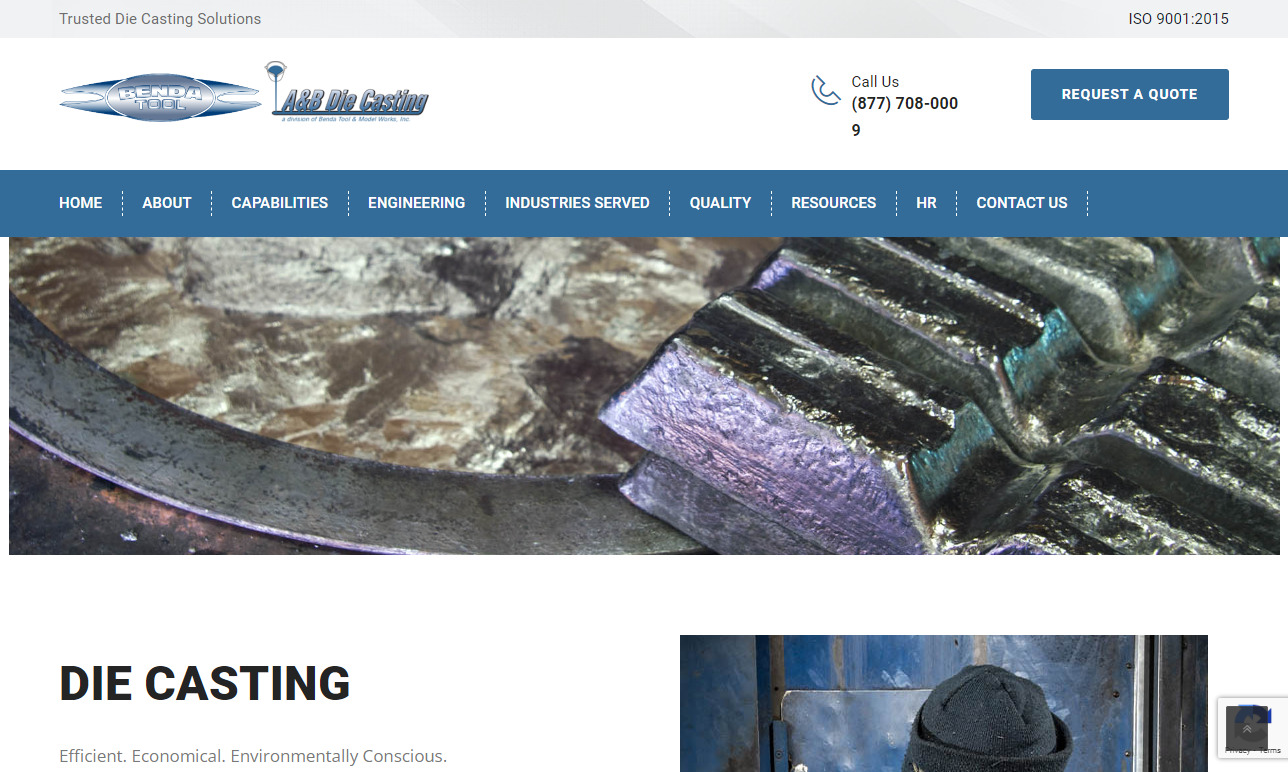
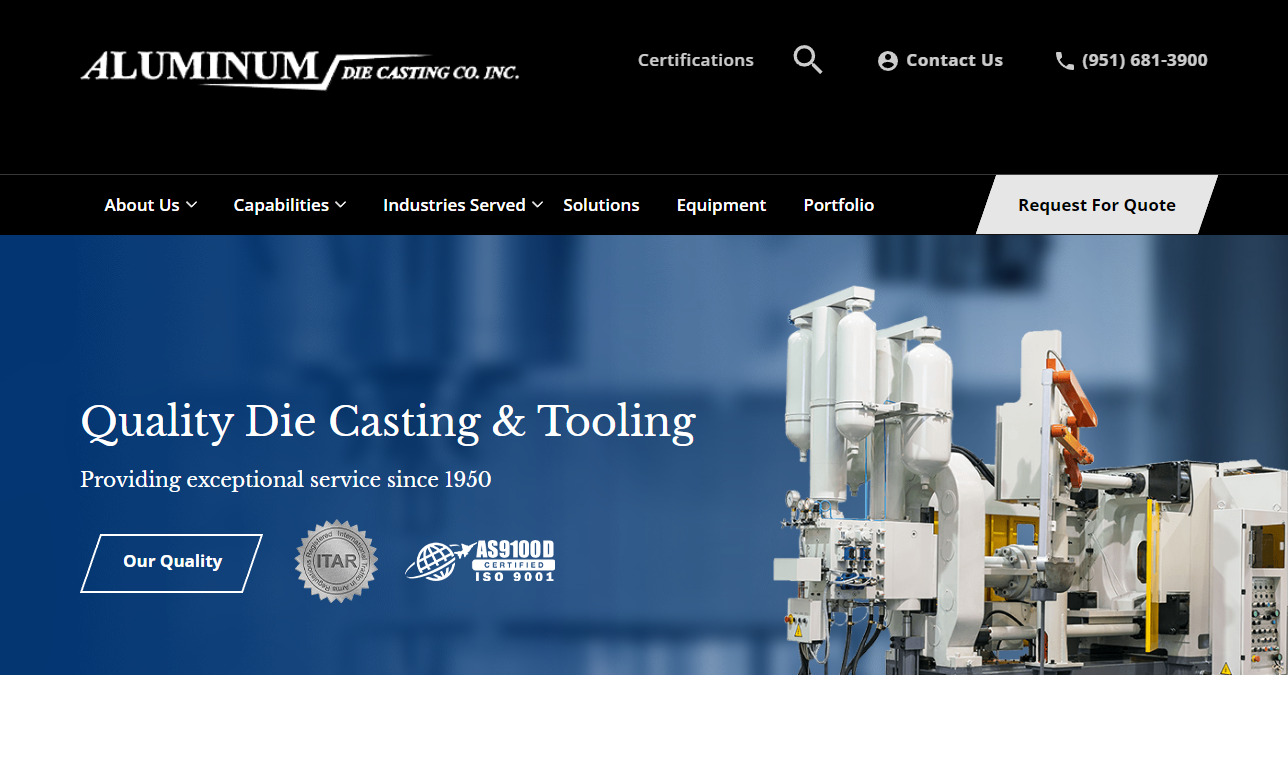
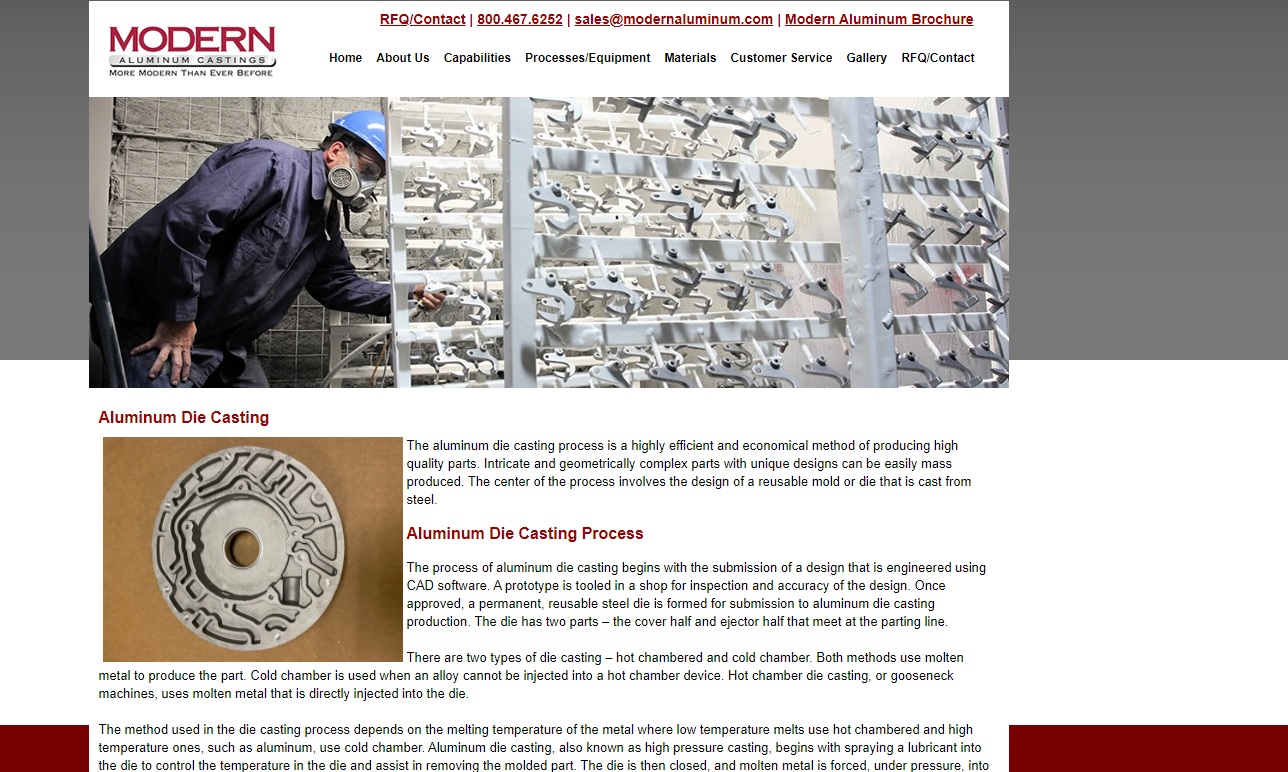

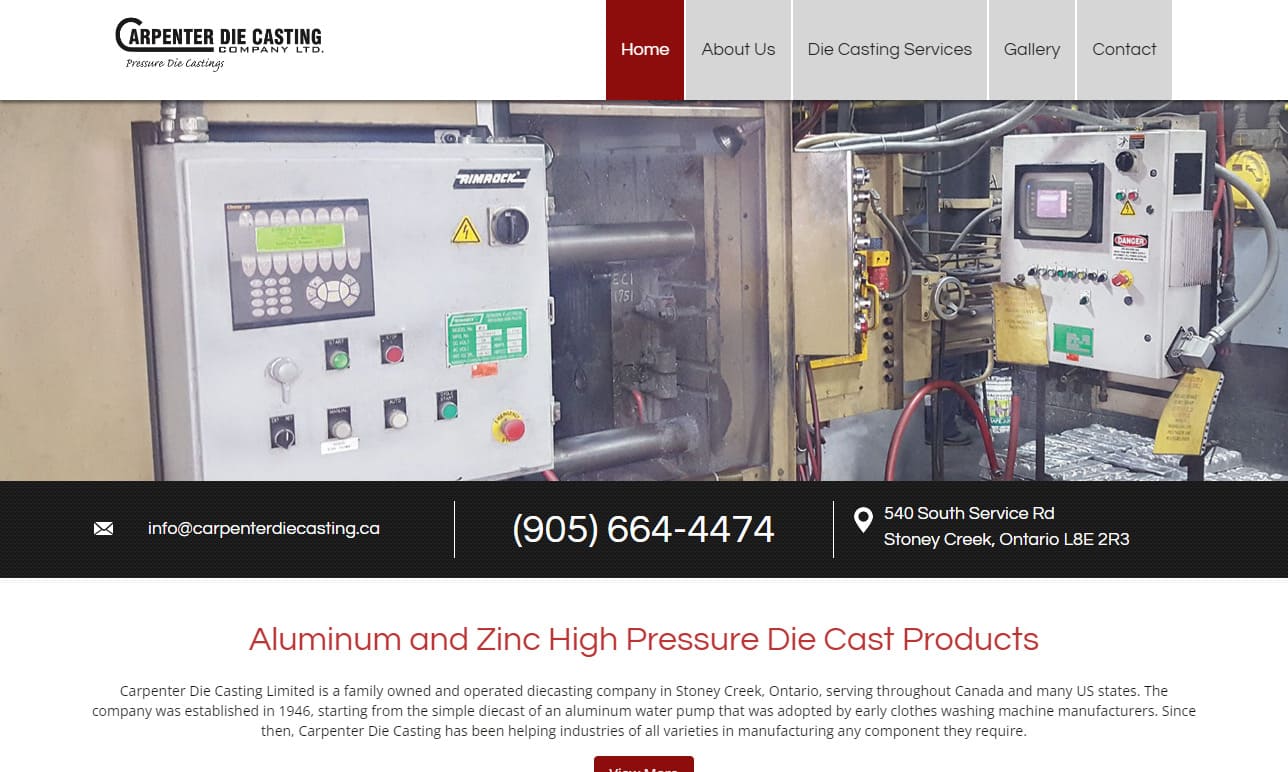

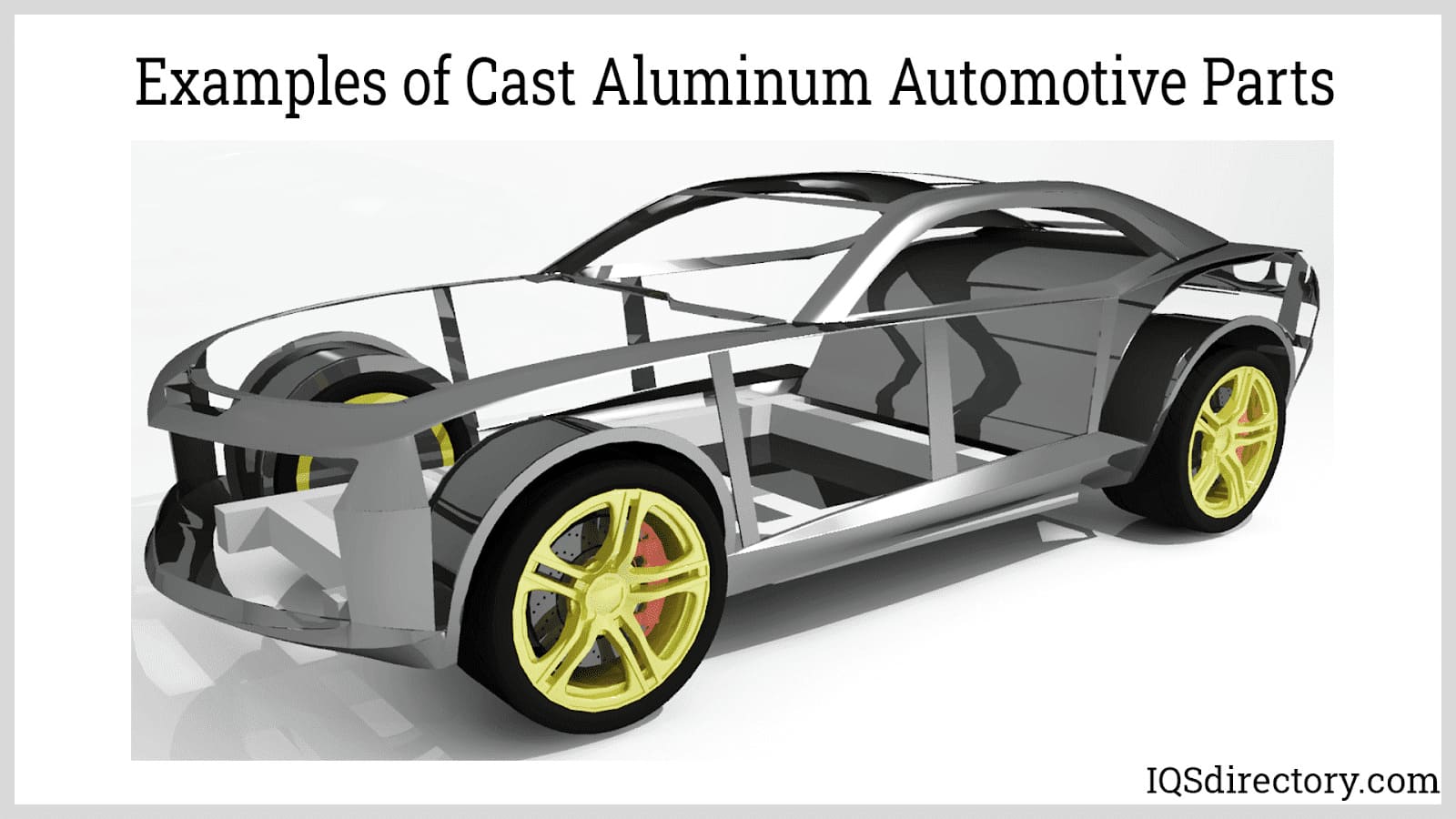
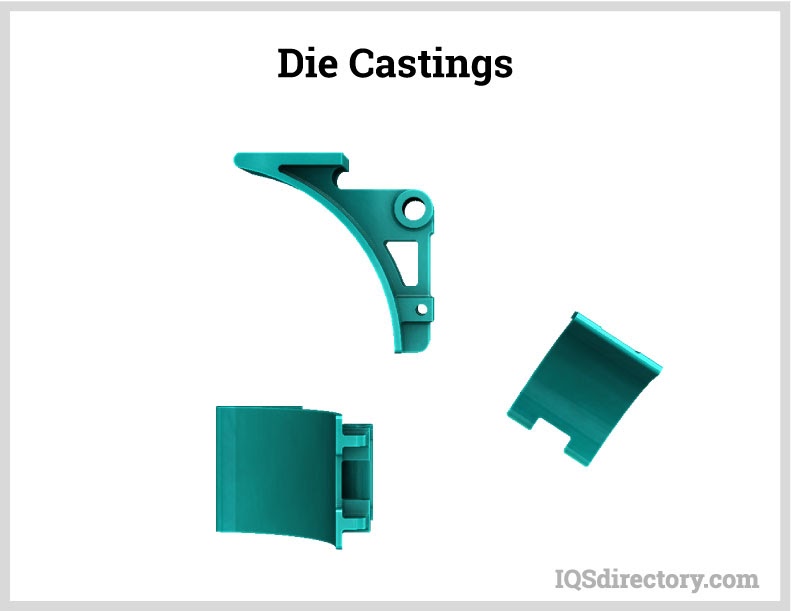
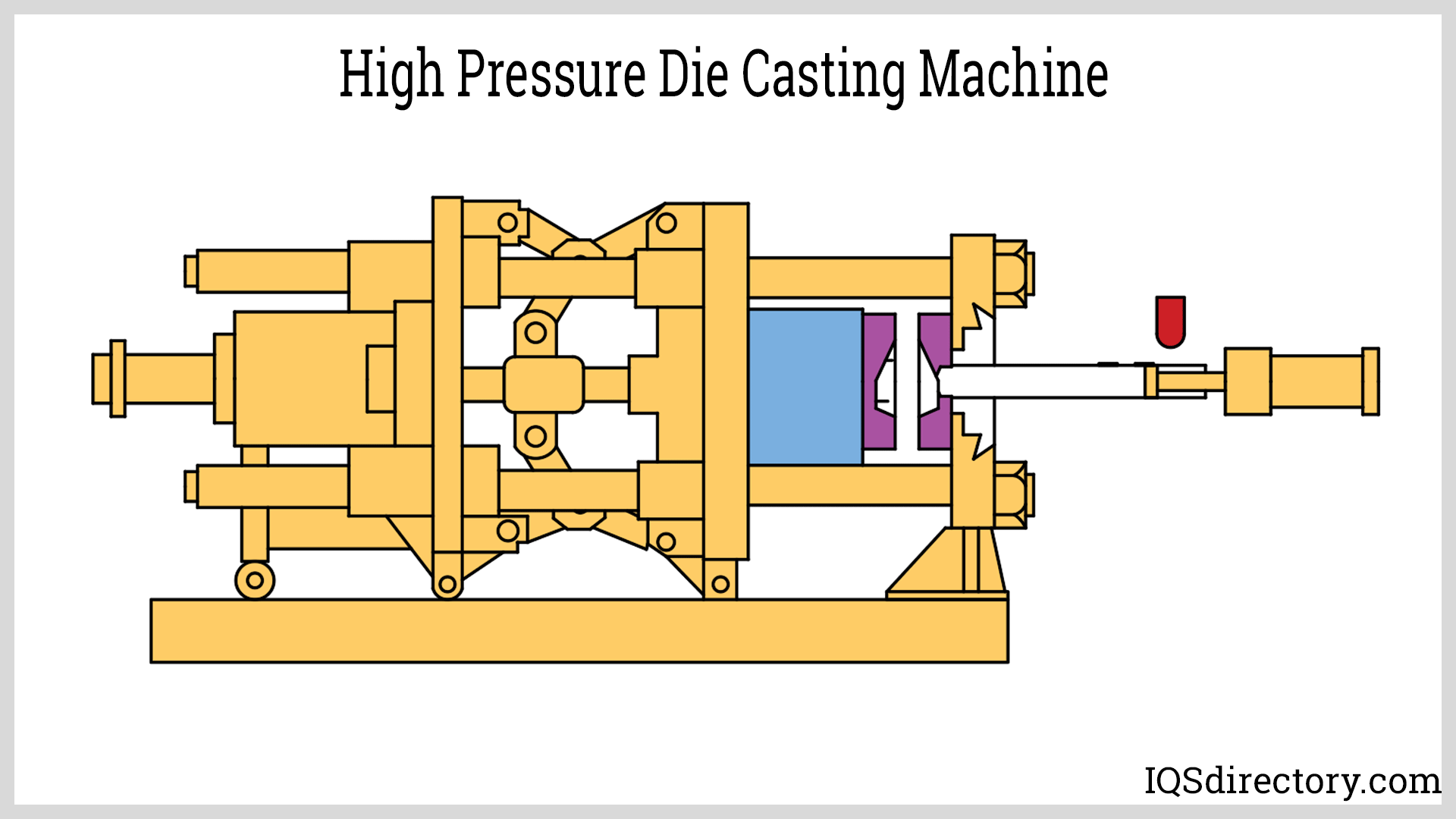
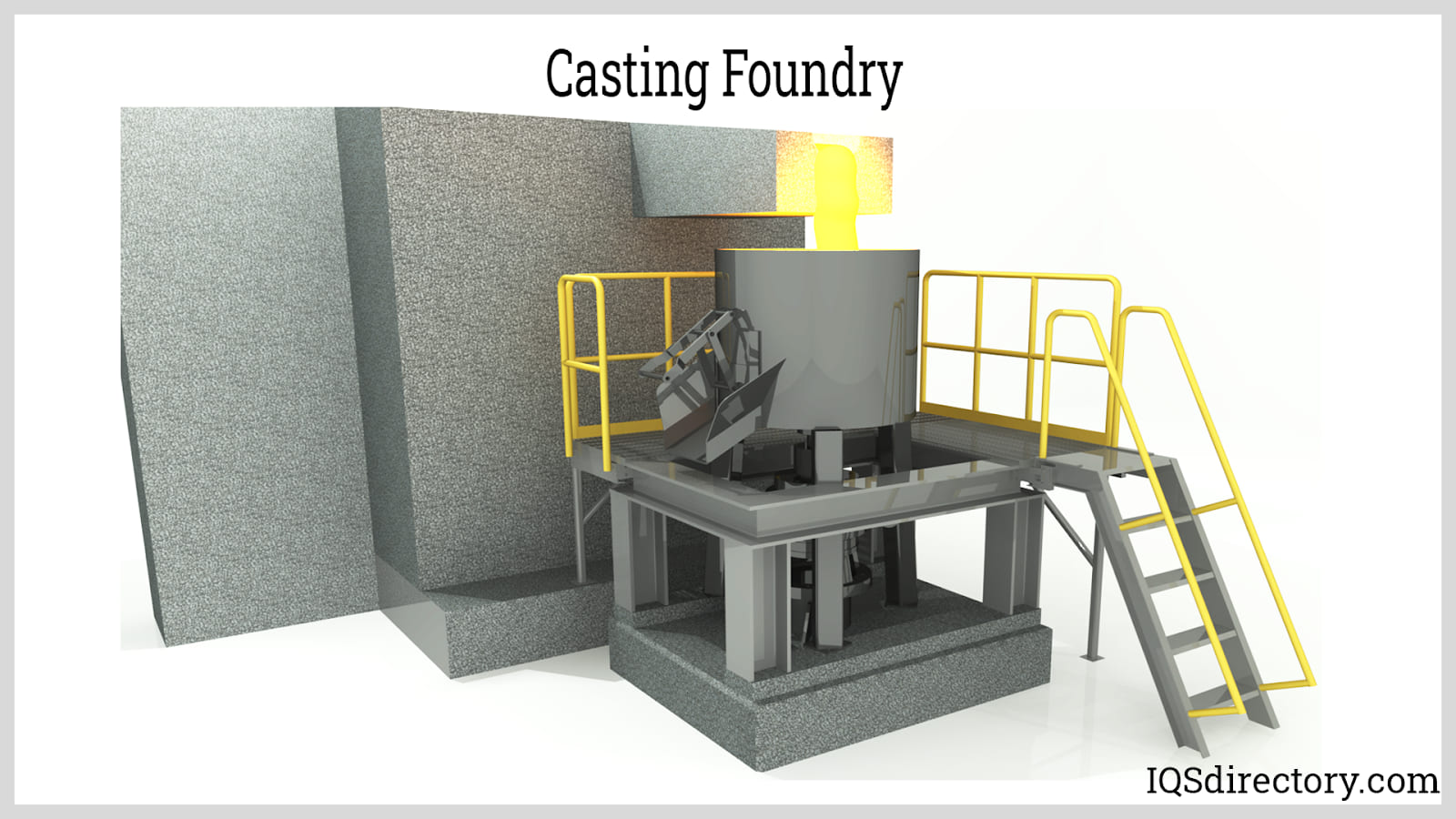
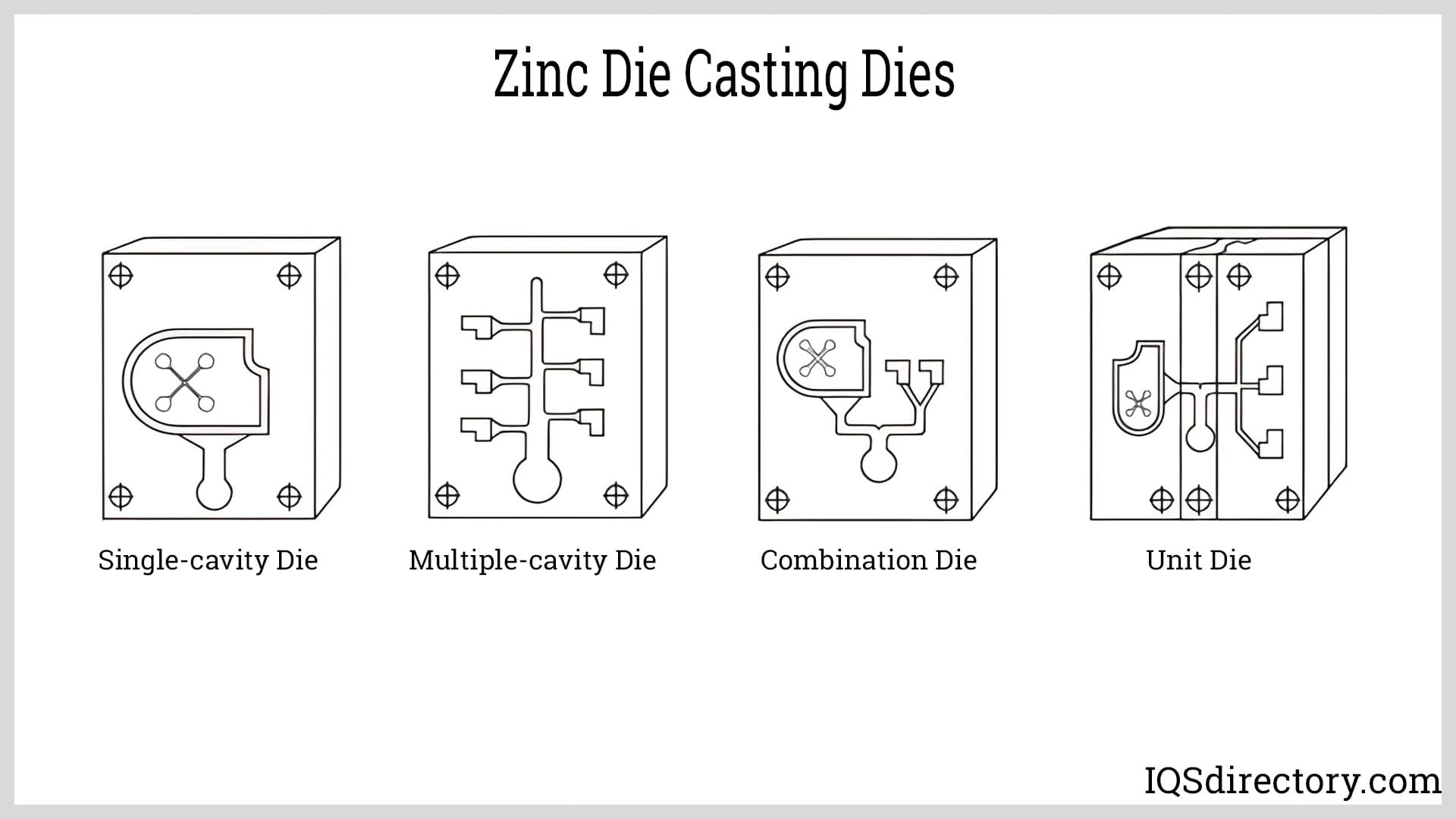
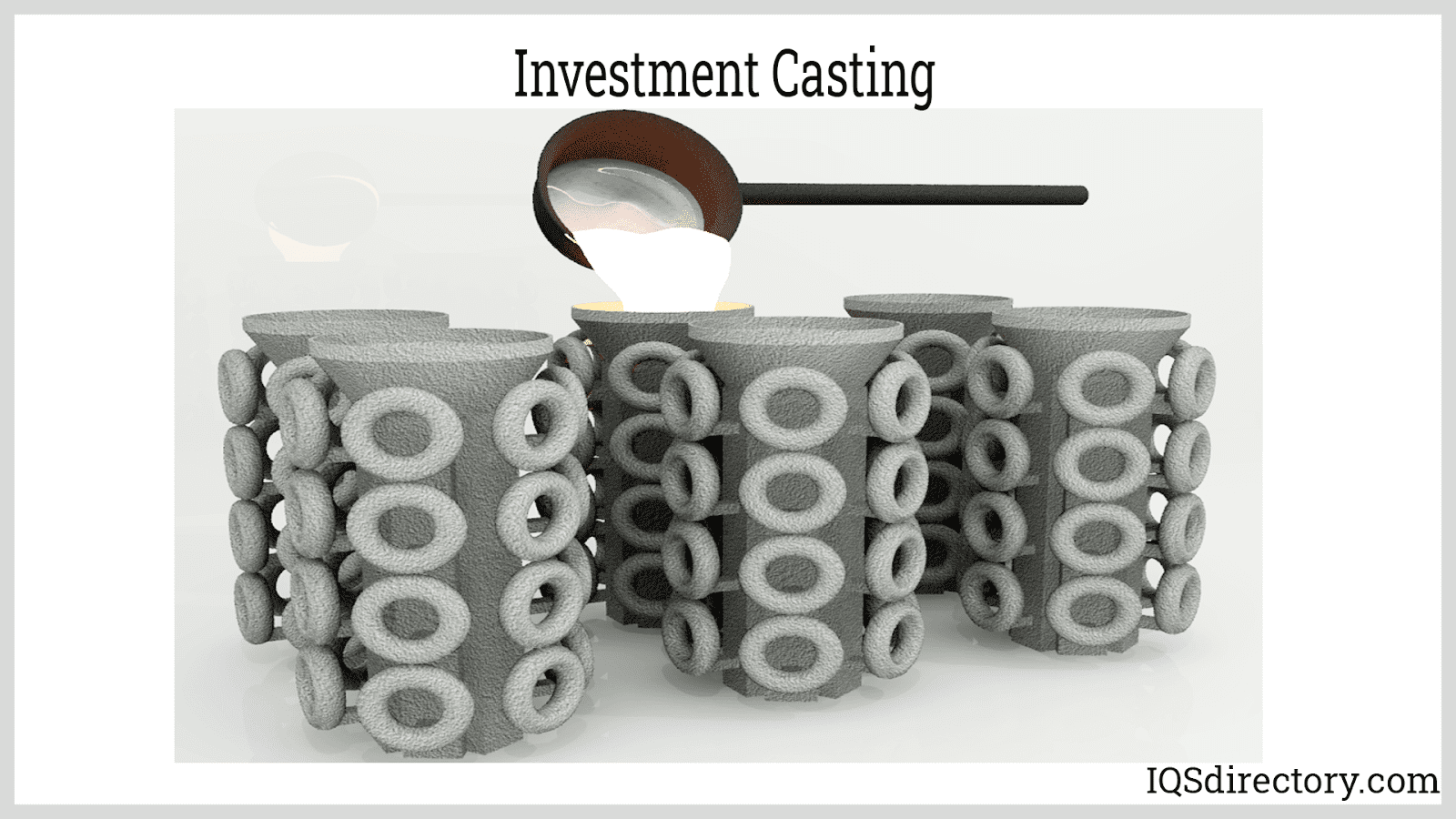
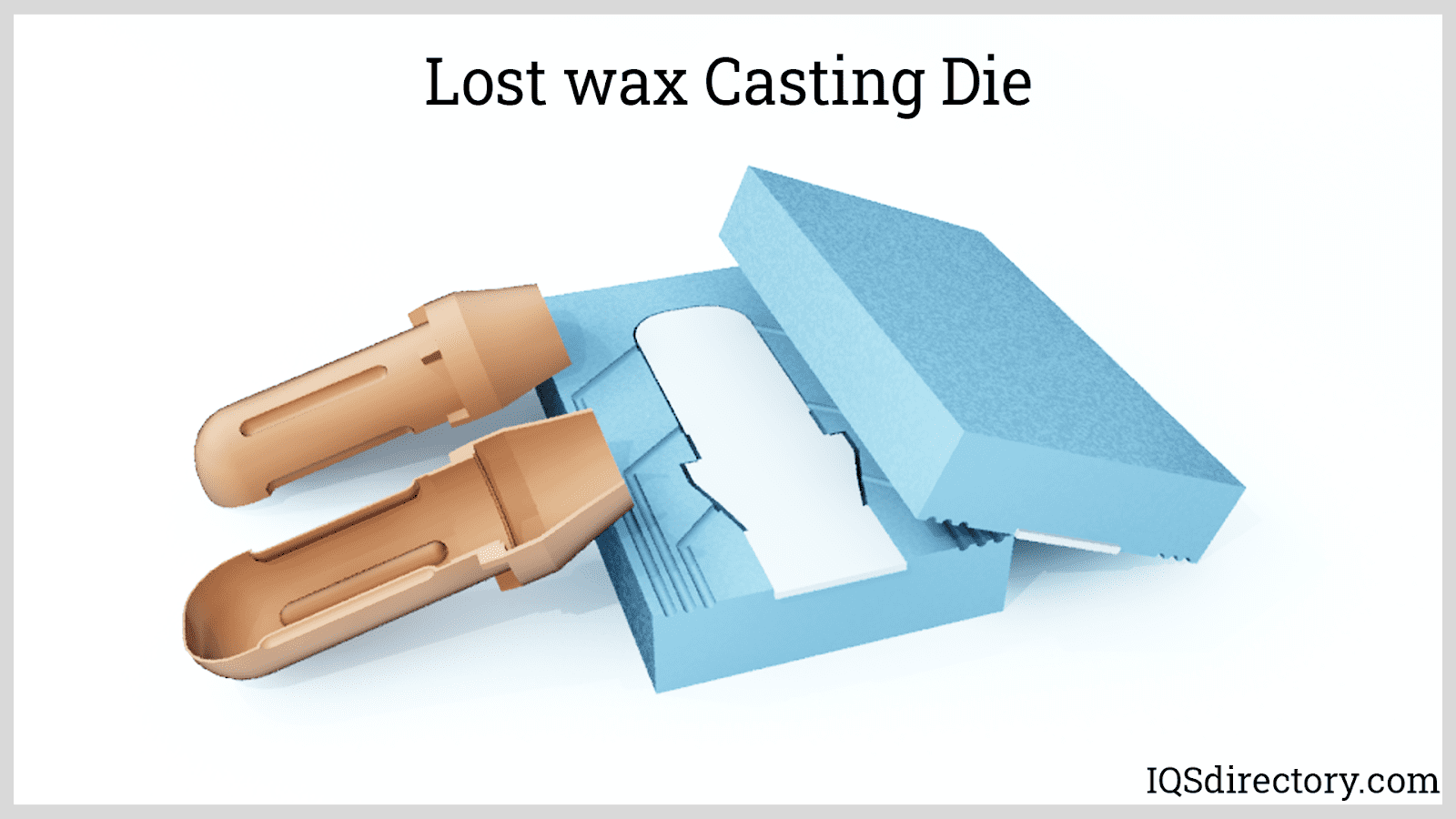
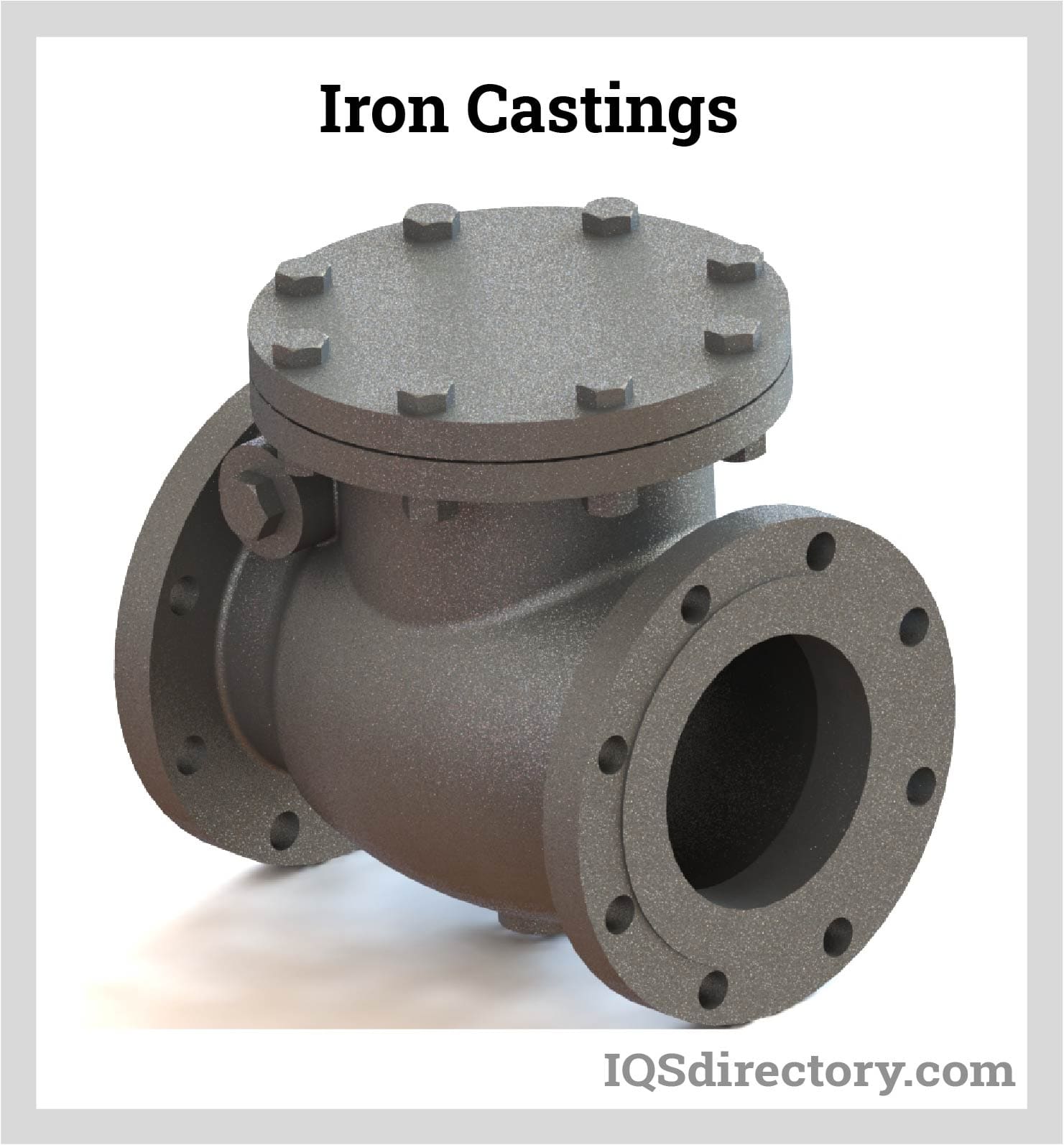
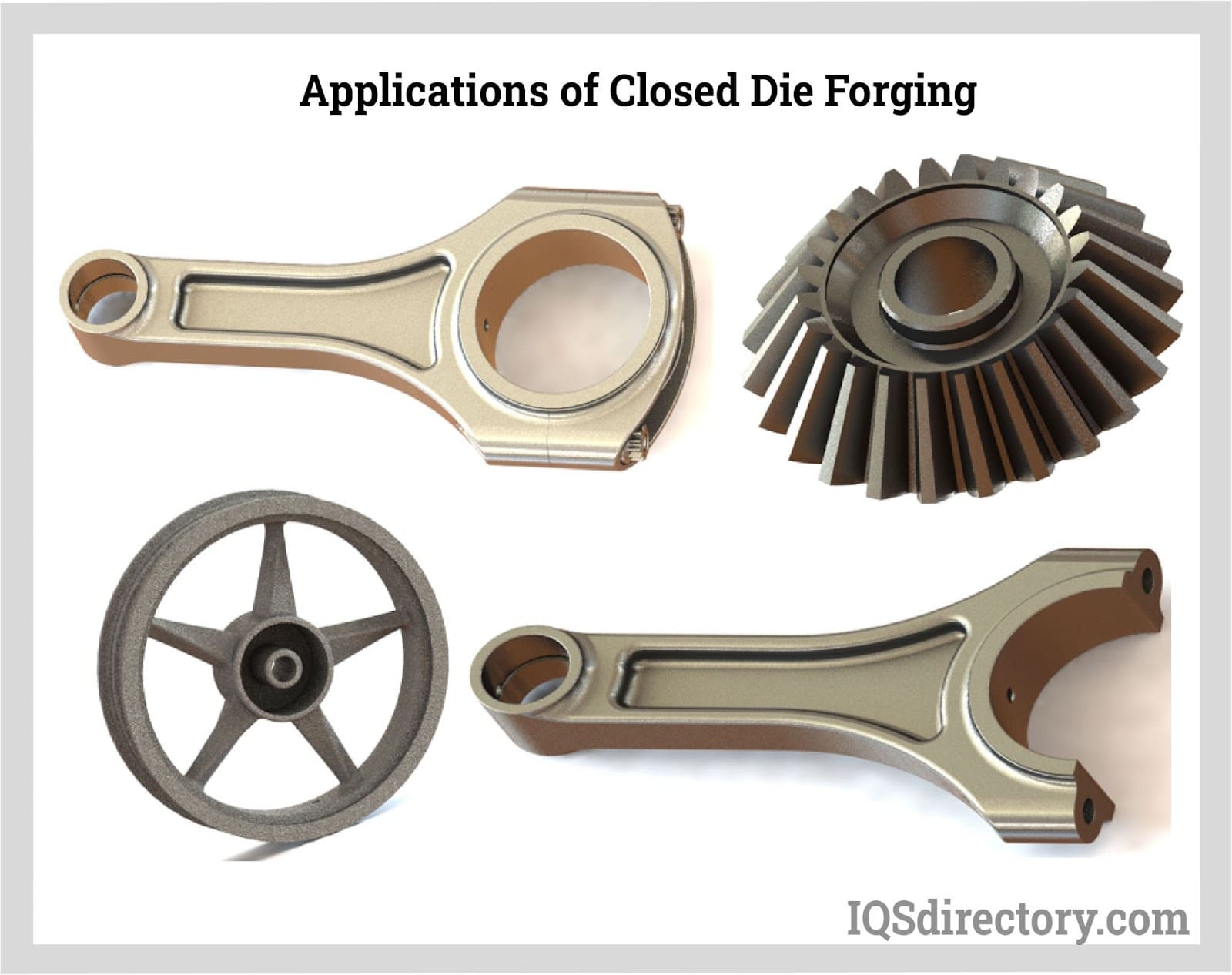
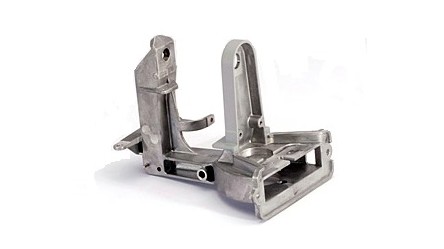 Die Castings
Die Castings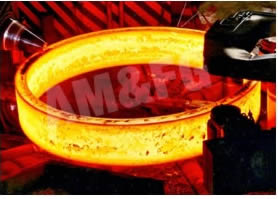 Forgings
Forgings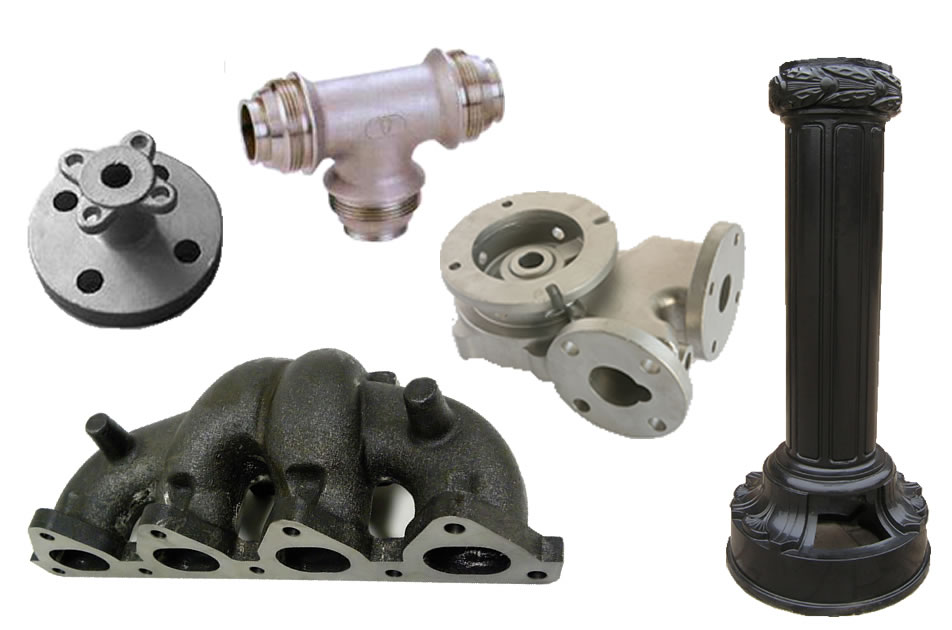 Grey Iron Castings
Grey Iron Castings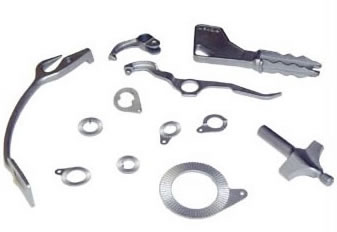 Investment Castings
Investment Castings Castings & Forgings
Castings & Forgings Bulk Material Handling
Bulk Material Handling Electrical & Electronic Components
Electrical & Electronic Components Flow Instrumentation
Flow Instrumentation Hardware
Hardware Material Handling Equipment
Material Handling Equipment Metal Cutting Services
Metal Cutting Services Metal Forming Services
Metal Forming Services Metal Suppliers
Metal Suppliers Motion Control Products
Motion Control Products Plant & Facility Equipment
Plant & Facility Equipment Plant & Facility Supplies
Plant & Facility Supplies Plastic Molding Processes
Plastic Molding Processes Pumps & Valves
Pumps & Valves Recycling Equipment
Recycling Equipment Rubber Products & Services
Rubber Products & Services